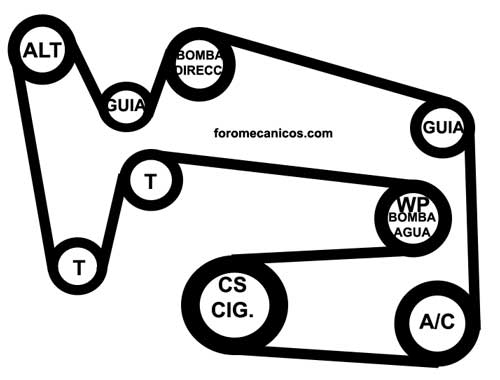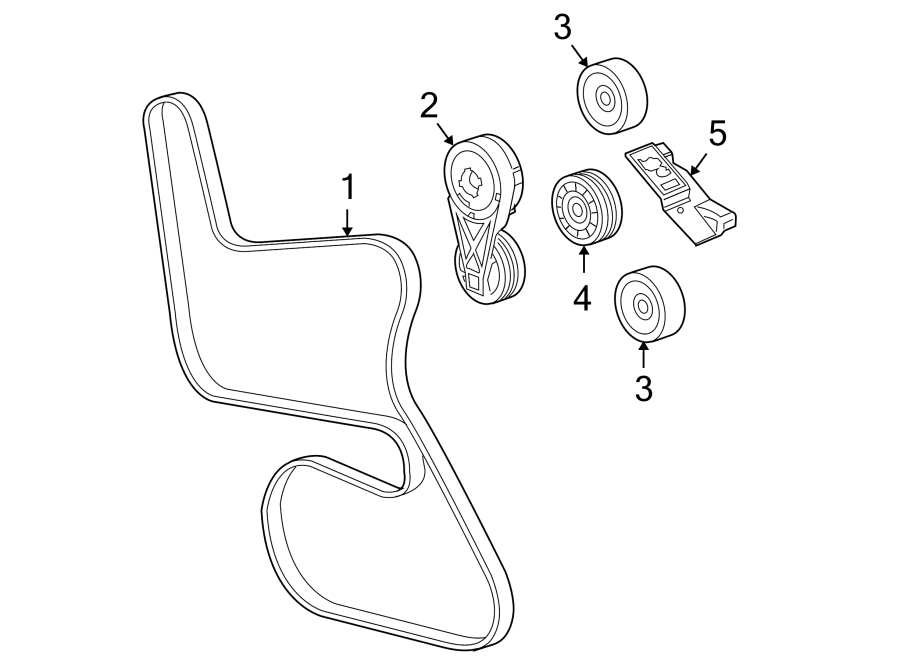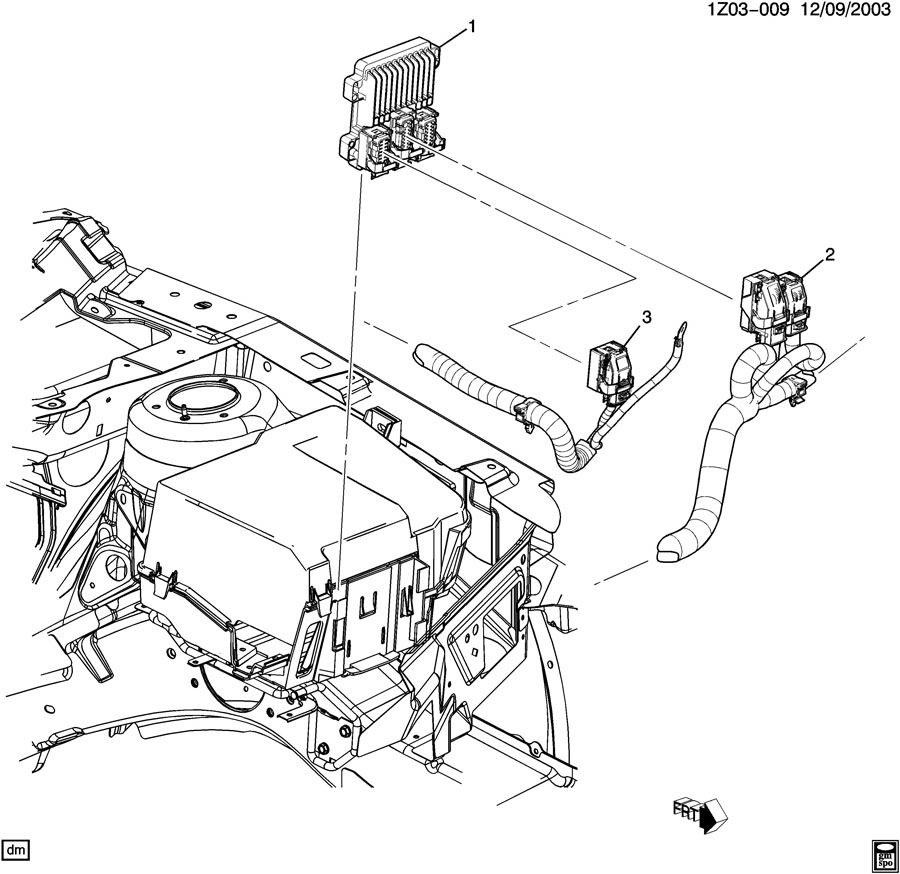08 Pontiac G6 Serpentine Belt Diagram – Belt diagrams offer a visual representation of the layout and routing of belts in various mechanical systems. They show how belts are placed around various components. This is useful for mechanics, engineers or DIY enthusiasts, as well as all those working on engines, HVAC systems, and other belt-driven equipment.
Types and applications of Belt Diagrams
- Serpentine belt diagrams will be used when a single, continuous belt is used to drive several devices.
- Timing diagrams show the way a timing belt connects to the crankshaft. This ensures that the engine’s timing is correct. valves.
- V-belt diagrams illustrate how multiple V-shaped belts are installed in older engines or in other systems that are specialized.
Key Components in Belt Diagrams
- The Pulleys are circular devices in which belts are wrapped around, transferring power to a single component.
- Belts are described as elastic bands that transmit power to pulleys.
- Tensioners hold the belt in a tight place to avoid slippage.
What do I need to know in order to read a diagram of a belt
- Understanding symbols helps you identify components and routing patterns in the form of a diagram.
- Identifying key components such pulleys, belts, belts, tensioners, and pulleys allows you to visualize the system’s layout.
- Understanding routing patterns can reveal how the belt moves through it, and how it affects different elements.
This is a step-by-step guide to create an outline of a belt.
- Gather Important Info Measure precisely and explain the belts, components, as well as their placement
- Sketch the initial plan: Sketch a system plan which includes each pulley or tensioner.
- Add Tensioners and Pulleys. Label each pulley’s component (e.g. power steering pump, alternator).
- Draw the Belt Routing Diagram: Sketch out the path of the belt(s) around pulleys, following the specifications of the manufacturer or industry standards to ensure proper routing.
- Refine your diagram.
Tips and Tricks for Belt Diagrams
- Utilizing software tools can make creating professional-looking diagrams much simpler, accurate and effective.
- It’s crucial to gather information from manuals for service or manufacturer specifications as well as other trustworthy internet sources in order to produce a useful and precise belt diagram.
- Double checking for errors prior to finalizing your drawing will ensure accuracy and solid. It also prevents problems or confusion in the course of repairs or maintenance.
Conclusion
A solid understanding of and the ability to draw belt diagrams is crucial for anyone who works with belt-driven machines. When you’re familiar with the different types of diagrams, their elements, and how to construct them correctly You’ll be more equipped to tackle any task that involves pulleys or belts. Use our suggestions and tricks to create concise, precise diagrams that make your work more efficient and effective.





